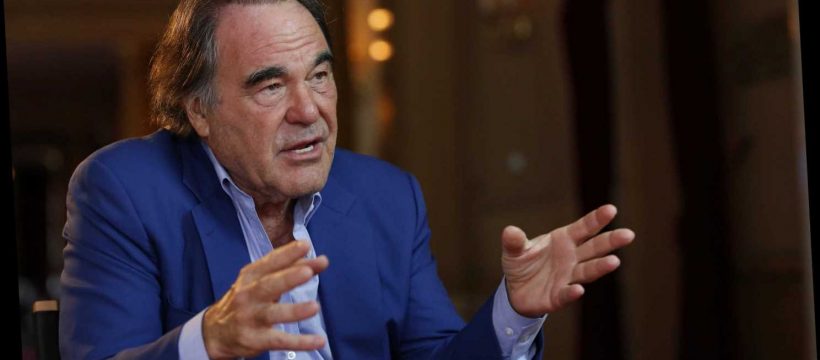In an upcoming hour-long interview with the BBC World Service’s radio program “The Arts Hour,” always-outspoken filmmaker Oliver Stone opens up about a variety of hot button issues. The Oscar-winning director, producer, and writer joined host Nikki Bedi for a wide-ranging chat that, given Stone’s predilection for unfiltered opinions, includes plenty of discussion about questions regarding so-called cancel culture.
When asked about how older, potentially offensive films should be treated in the current climate, including “Gone with the Wind,” which was temporarily pulled from new streaming service HBO Max last month, before returning with an informative disclaimer, Stone said he does not support the wholesale removal of such work.
“It’s very true that ‘Gone with the Wind’ is a very colored treatment of the South, but I think it’s a classic, it was my mother’s film of her generation,” Stone said. “She loved it and it defined so many people, you can’t deny that. Certainly today, there possibly should be disclaimers put on or explanations to the audience — this represents a sweetened picture of the South. It does not deal with the issue of slavery in its worst form. It should not be removed from circulation though. I don’t believe so.”
During the interview, Stone was also asked about allegations of sexual misconduct, including long-running claims that his casting process on “The Doors” was demeaning to actresses and a 2017 allegation from actress Carrie Stevens that Stone groped her at a party. “I’d never admit misconduct,” Stone said. “I’ve been crazy man too, I’m not going to say that everything is hunky dory. No, I had a crazy life, but I never did anything that was exploitive or assaultive or violent. I never had the need to and never wanted to.”
He added, “Harvey’s [Weinstein] behavior shocked me. I didn’t know anything about it.” (In 2017, Stevens went public with her allegations after Stone defended now-convicted sex offender Weinstein, who was then facing a cavalcade of sexual misconduct allegations. At the time, Stone said he was a believer in the judicial process, saying, “I’m a believer that you wait until this thing gets to trial.”)
Stone was also asked about some of his recent work, including the 2017 two-part, four-hour “The Putin Interviews,” which was lambasted by many for going easy on Russian President Vladimir Putin. Asked about the criticism of that project, Stone said, “I got unbelievable access … and he liked me because I listened to him. All the questions are there, most people [who are critical] don’t even bother to watch one hour of the four hours, so there’s a lot of misunderstanding. … If you see it, you can see that I am challenging him.”
He continued, “If I had treated him like ‘Why why why, why are you this, why are you that,’ those kind of questions don’t get anywhere and they become stilted, boring interviews where they’re trying to make the person they’re interviewing defensive. Doesn’t give anything. I learnt a lot more by letting them talk. … I took no editorial position. … I was trying to understand him, because America and Britain have made such a huge deal about how evil Russia is. I think there has to be a complete restructuring of our understanding in order for our own health. I think this cold war is so ridiculous and unnecessary, especially in a time of planetary disorder like this.”
In the new interview, airing later this week, Stone also talks about his process, his family, his experiences in the Vietnam War, and shares more stories about some of his most popular films. “The Arts Hour” interview with Oliver Stone will air on bbcworldservice.com on July 25 and will be available following its initial airing right here. “The Arts Hour” is BBC World Service’s flagship arts program and is presented by Nikki Bedi.
Source: Read Full Article
